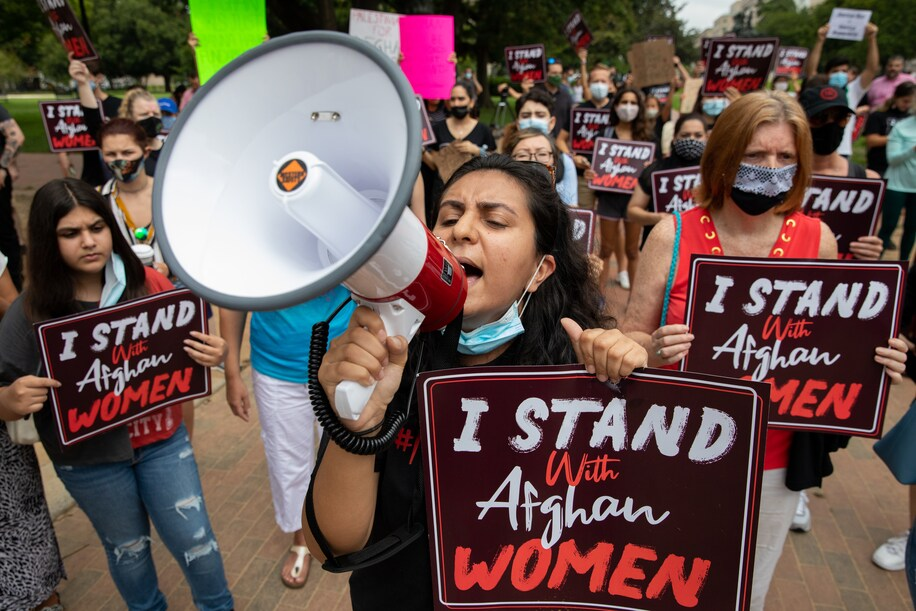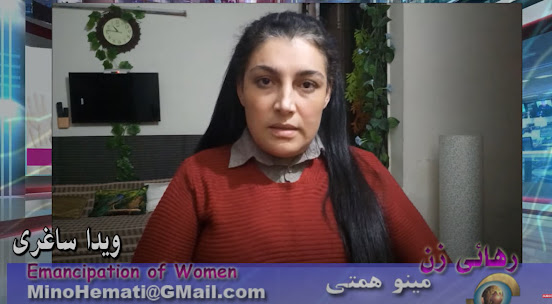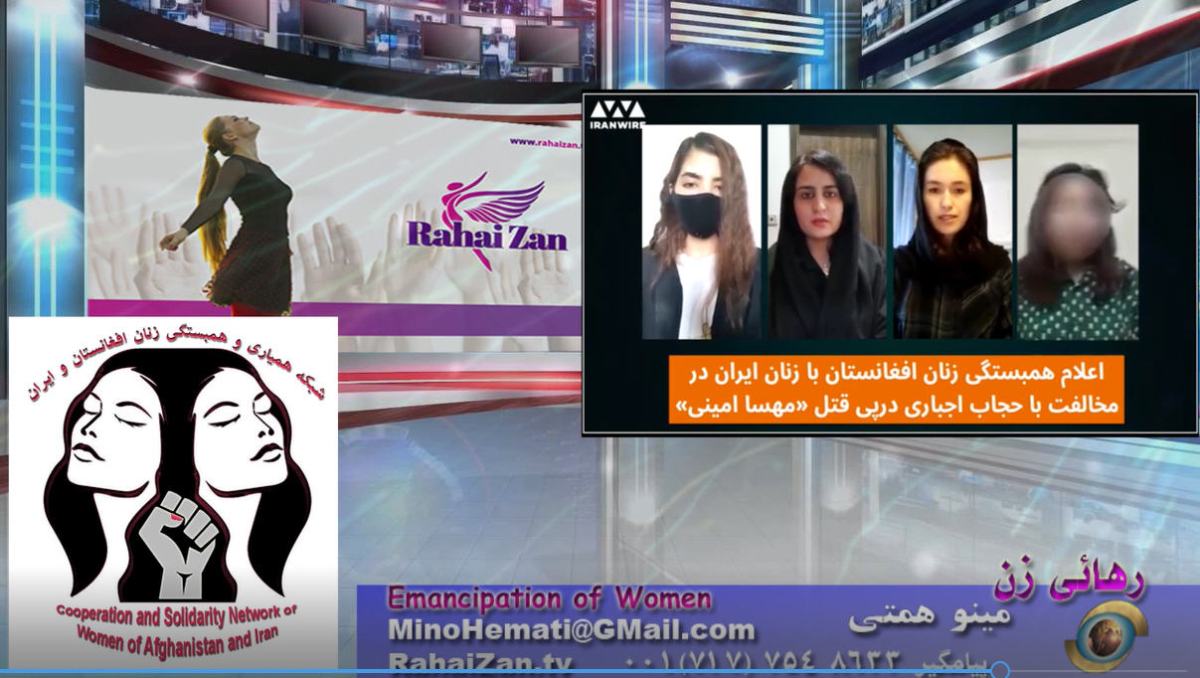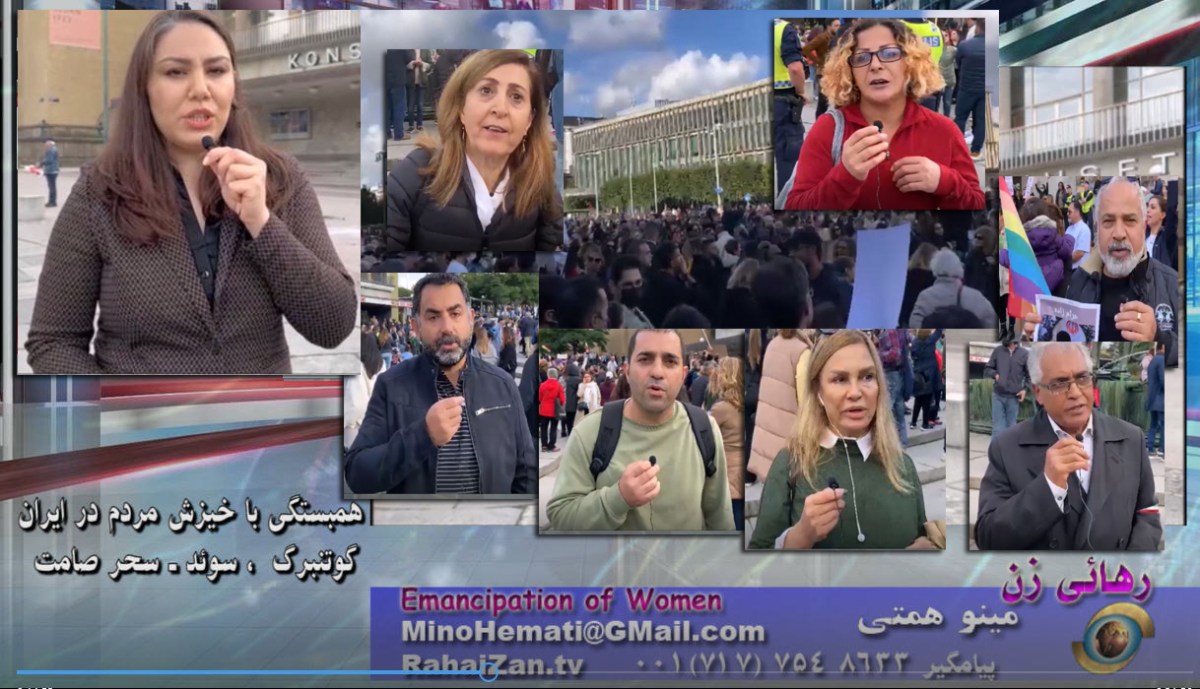Home
LATEST POSTS
What happened in August 2021?
The return of the Taliban to power in Afghanistan, which has never been and is not the choice of the people in Afghanistan, return of medieval political-slam gangsters after 20 years to oppress women and girls of Afghanistan, has made the world Anxious, scared and angry. This “return to power”, has been hampered by emergence of a widespread resistance and protests by Afghan women, girls and citizens, making the survival of the Taliban more difficult than ever.
The catastrophic dangers of the Taliban regaining power in Afghanistan, violence, insecurity, poverty and misery, beyond terrorism and war and destruction, have targeted more innocent people in Afghanistan, especially women and girls, but women and people in Afghanistan are not alone. Angry humanity, all over the world, is watching with astonished eyes what is happening daily in Kabul, Kandahar, Mazar-e-Sharif and Herat and is trying in every possible way to “improve the situation”, to support women, the first victims of this great humanitarian catastrophe, trying to do something!


!
در رسانه های فارسی زبان

سرنوشت مردم و بخصوص زنان افغانستان در دست کیست؟ Who is in charge of the fate of the people, especially the women of Afghanistan? در گفتگو با سحر صامت، ویدا ساغری، بهشته رحمانی، ماریا یوسفزی و جمال فرهمند از پنجشیر پاسخ را از زبان فعالین زنان و حقوق بشر و ژورنالیستهای افغانستانی می شنویم In an interview with Sahar Samet, Wida Saghary, Beheshteh Rahmani, Maria Yousefzai and Jamal Farahmand from Panjshirو We hear the answer from Afghan women and human rights activists and journalists Rahai Zan TV (Emancipation of Women TV, a weekly TV program broadcasting via satellite since October 2004 from Los Angeles, Channel One TV (in Farsi) to viewers in North America, Europe, Middle East and Far East. The program Centers on women’s rights issues, in defense of defenseless victims of Islamic penal law, women condemned to stoning or other cruel punishment. Producer / Anchor: Mino Hemati

ٌ
پیام ویدا ساغری به مردم افغانستان و جهان، بمناسبت روز جهانی محو خشونت به زنان مصادف با یکصدمین روز حاکمیت منحوس طالبان بر افغانستان

Message from Wida Saghary Human Rights, Women Rights activist and and prominent Afghan Journalist. November 25th,The International Day for the Elimination of Violence Against Women

Afghanistan: Women call on the international community to support women’s rights amid ongoing Taliban suppression

The international community must stand by its long-term commitment to support women’s rights in Afghanistan, said Amnesty International, ahead of a new campaign highlighting the achievements of 16 remarkable Afghan women.
To mark this year’s 16 Days of Activism against Gender-Based Violence–an annual international campaign celebrating women in every region of the world who fight gender-based discrimination and stand up for women’s rights–the human rights organization is sharing the stories of 16 trailblazing Afghan women who had overcome huge barriers to participation across public life over the past two decades. In their own words, women from diverse public spheres including law, politics, academia, and the media recount their professional paths, their feelings about the Taliban’s return, their hopes and fears for the future, and their recommendations to the international community on how to continue supporting women’s rights.
“These stories offer a powerful and timely reminder of just how far Afghan women had come over the past twenty years, in the face of seemingly insurmountable obstacles. They also provide a sobering insight into how life has transformed for women and girls since the Taliban’s return,” said Samira Hamidi, Amnesty International’s South Asia Campaigner.
It’s astonishing that, at a time the country is facing an economic and humanitarian crisis, these women and thousands more like them are being barred from public life
Samira Hamidi, Amnesty International’s South Asia Campaigner
“It’s astonishing that, at a time the country is facing an economic and humanitarian crisis, these women and thousands more like them are being barred from public life. We urge the Taliban to respect, protect and fulfil the rights of women and girls. We call on the international community to engage directly with Afghan women to understand their reality, listen to their pragmatic recommendations, and work with them to support women’s rights.”
Since taking control of Kabul on 15 August 2021, the Taliban have imposed severe restrictions on women and girls. Apart from healthcare workers and a few other isolated exemptions, women have been told they cannot return to work or travel in public without being accompanied by a Mahram (male guardian). Since 20 September, girls above the age of 12 (grade six and above) have not been allowed to go to school, while rigid gender segregation at universities has severely curtailed women in higher education.
Businesswoman Sediqa Mushtaq told Amnesty International, “When I heard the news that the Taliban had entered Kabul, I felt as if I fell and broke into pieces. I fell from a bright place into darkness with no light to be seen.”
Preventing women from working has exacerbated economic problems for many families, which had previously enjoyed steady professional incomes, while removing women from government jobs has left a huge hole in the state’s capacity to govern effectively. Women now also face increased threats of gender-based violence and severe restrictions on their rights to freedom of assembly and freedom of expression, including on even their choice of clothing.
Fawzia Amini, formerly a senior judge in Afghanistan’s Supreme Court, said: “The Taliban have institutionalized discrimination against women; they are denying our fundamental rights…they want to wipe women from the face of society and make us all prisoners in our own homes.”
While much work remained to be done, women’s rights had improved significantly since the fall of the first Taliban regime in 2001. There were 3.3 million girls in education, and women had actively participated in the political, economic and social life of the country. Despite ongoing conflict, Afghan women had become lawyers, doctors, judges, teachers, engineers, athletes, activists, politicians, journalists, bureaucrats, business owners, police officers, and members of the military.
The Taliban have institutionalized discrimination against women; they are denying our fundamental rights
Fawzia Amini, a former senior judge in Afghanistan’s Supreme Court
Former police officer, Zala Zazai, said: “The international community must pressure the Taliban to ensure women’s rights and they must do everything to ensure that women are part of the new government. The Taliban cannot eliminate half of the population of Afghanistan.”
Background
The briefing, “They are the Revolution”: Afghan Women fighting for their future under Taliban rule, is available here.




